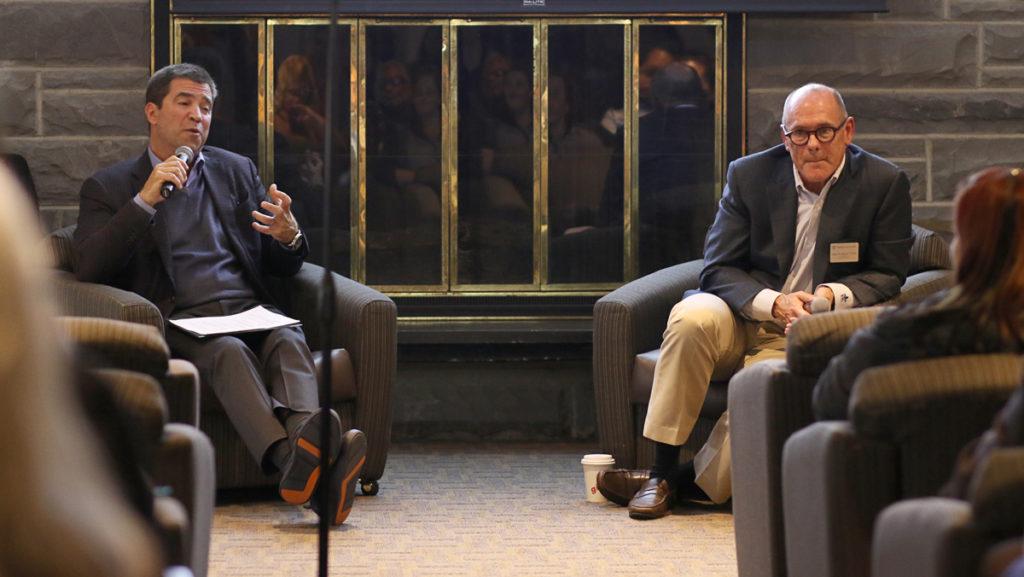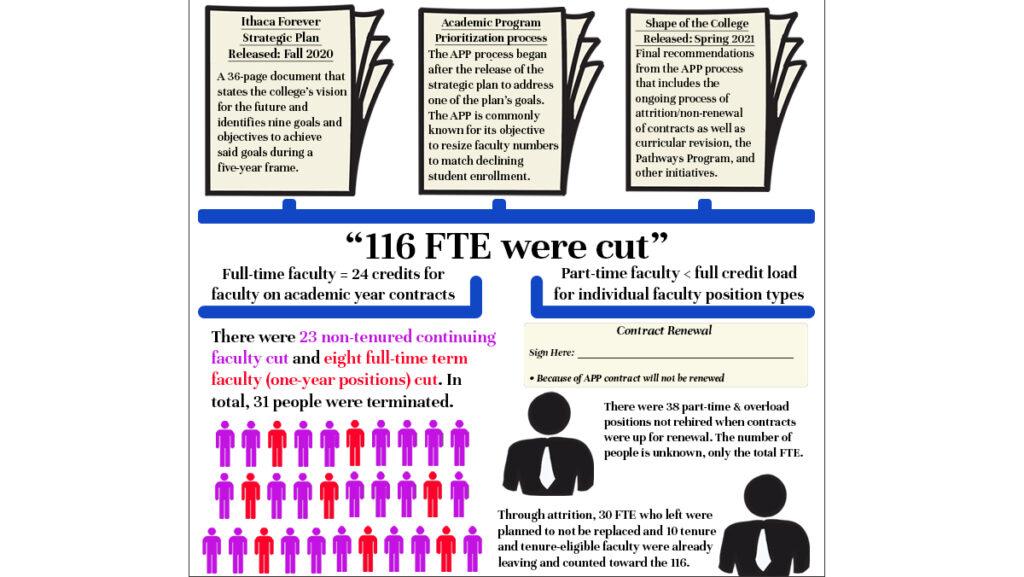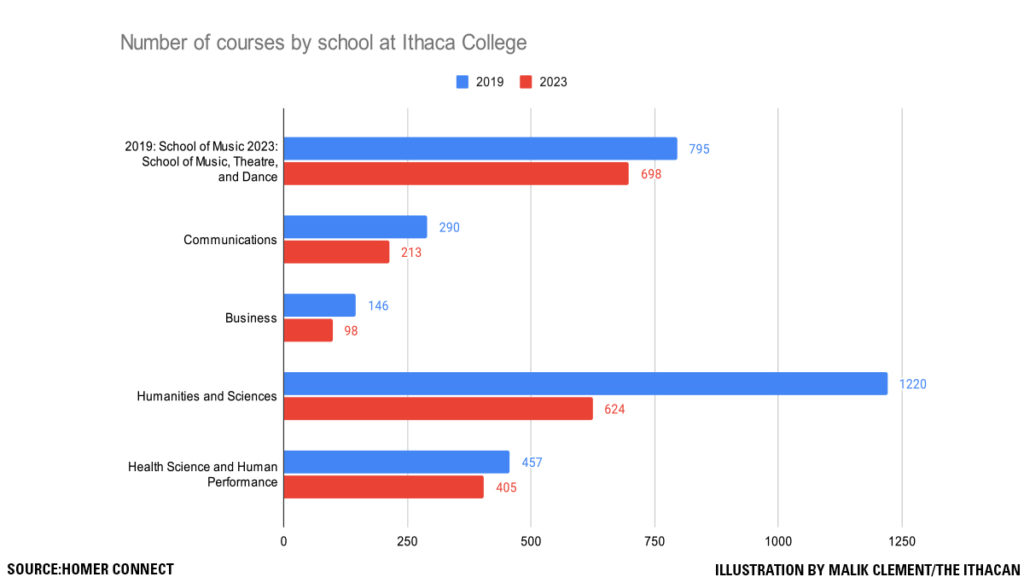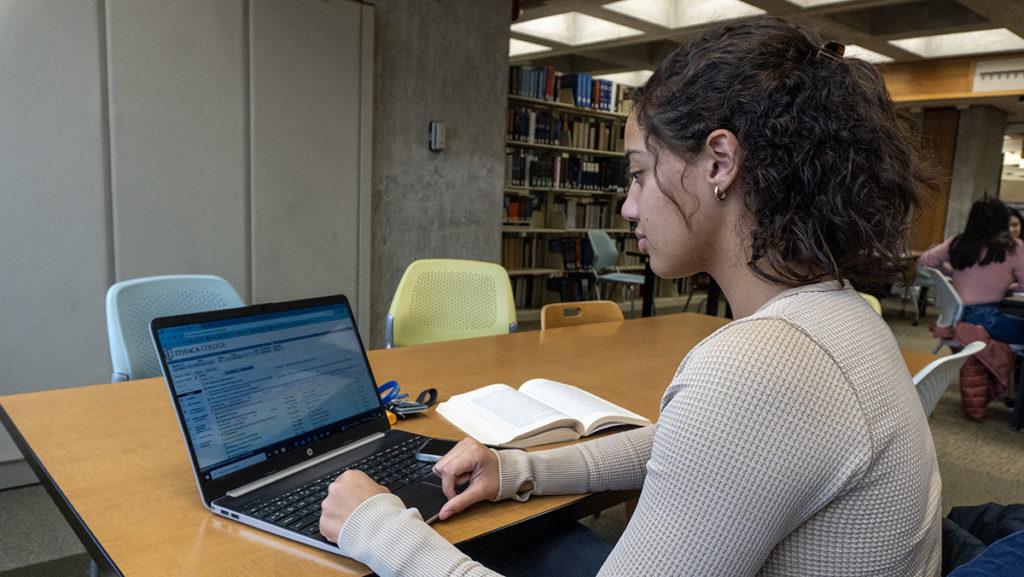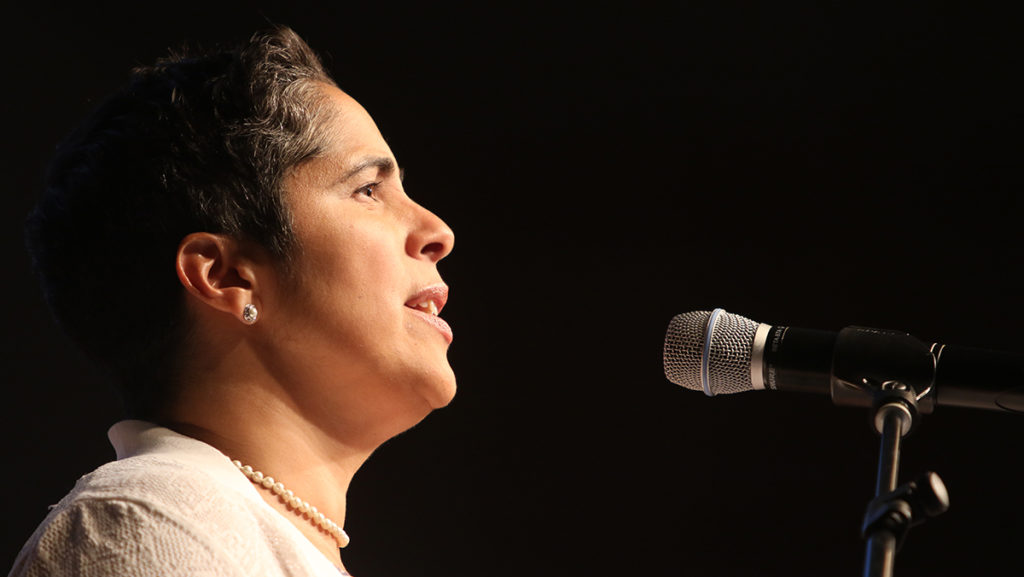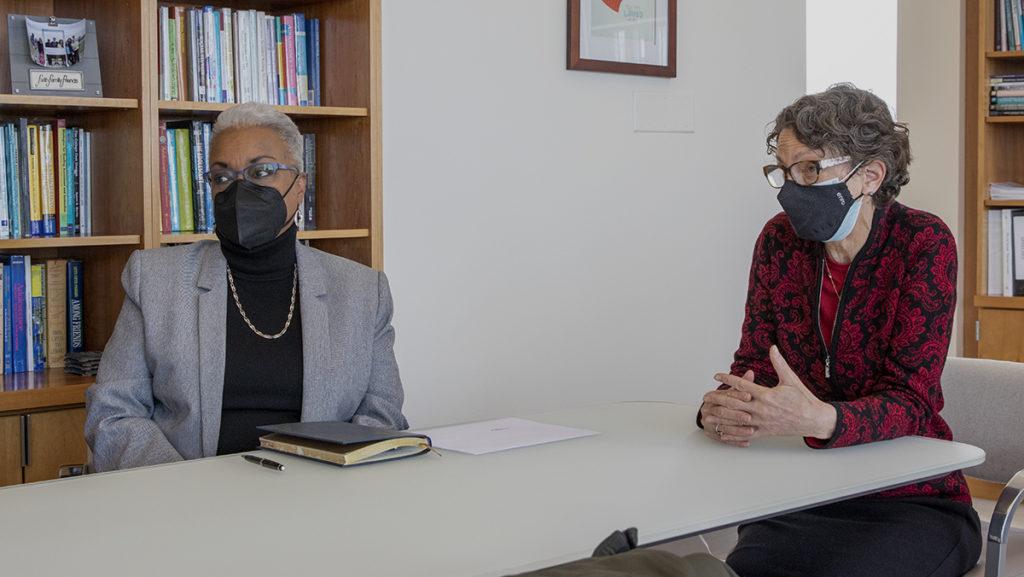Ithaca College Alumni Against Austerity (ICAA) announced Aug. 25 that it is gathering complaints against the Senior Leadership Team (SLT) and the Ithaca College Board of Trustees regarding the way the Academic Program Prioritization (APP) process has been handled.
The ICAAA was formed in response to the 116 full-time equivalent (FTE) faculty positions and 26 programs, departments and majors that were cut due to the APP process. ICAAA held events during Spring 2021 for alumni to voice their concerns with the administration and the APP process. In a post on its social media, the group stated that it is concerned with a number of issues at the college, including declining enrollment numbers and the possibility of fiscal mismanagement. The group created an anonymous portal for current and former faculty, staff and students to submit testimony and complaints against the board of trustees and administration regarding any possible fiscal mismanagement, excessive compensation or incompetence, for example. ICAAA also said in its post that it is looking for evidence that the board of trustees and former President Shirley M. Collado engaged in wrongdoings at the college.
Collado had previously said she took a salary cut, but has refused to disclose her salary, despite multiple requests from The Ithacan.
Sara-Maria Sorentino ’08 said she and some other alumni had heard complaints regarding Collado and the board of trustees from former mentors, like professors, they knew at the college regarding the college’s administration.
“I think because we’re considered somewhat neutral as alumni — in terms of being disconnected from the current ongoing politics and the institution — people felt somewhat more comfortable sharing with us stories, like personal stories,” she said.
Sorentino said the group looked at other colleges that had dealt with allegations of fiscal mismanagement. She said ICAAA looked into Adelphi University, in Garden City, Long Island, and its case with the New York State Attorney General.
In 1997, Adelphi University removed 18 out of 19 Board of Trustees members due to alleged financial mismanagement. The case was referred to the New York State Attorney General from the New York State Board of Regents, which is responsible for overseeing educational activities within New York state. Dennis Vacco, the attorney general at the time, said in a New York Times article that he would look into bringing a civil lawsuit against the former Adelphi University trustees. In 1998, the former trustees and president of Adelphi University agreed to a multimillion-dollar settlement with the college.
Sorentino said the anonymous complaint portal will be a way to gather testimonies and stories to see if there is enough material for a case against Ithaca College. The ICAAA post said if there is sufficient evidence, ICAAA will file a complaint with the Charities Bureau of the New York State Office of the Attorney General against the Ithaca College Board of Trustees.
“We thought that if it did happen, that Ithaca had enough evidence that there were forms of mismanagement, particularly by the board of trustees, that this might set a useful precedent also for other institutions to follow,” she said.
Greg Peterson ’09 said the portal will most likely be open for a few months to give members of the campus community time to submit their responses and for ICAAA to gather information.
Peterson said keeping the portal anonymous will allow community members to submit testimonies without fear of losing their job if their name is attached to the submission. Peterson said he has heard faculty members say that there is a culture of fear at the college.
“Hopefully this portal will provide a safe, anonymous way for people to voice their concerns,” he said.
He said he hopes that the portal will allow ICAAA to be able to hold the board of trustees accountable.
“It’s hard to look at the past five years and see in what ways has the board made positive decisions,” Peterson said. “I think this is a way to hold them accountable and maybe even get some fundamental structural change in how the board is selected in the future.”
The board of trustees has 28 trustees — three of which are selected by the Faculty Council, Student Governance Council or Staff Council and are then the Governance and Compensation/Assessment Committee nominates the candidates to the full Board of Trustees. The other 25 are selected by the board’s Governance and Compensation/Assessment Committee which develops and recommends candidates for election or reelection.
One of the responsibilities of the board of trustees is to approve and review proposed changes to academic programs and major initiatives. Another responsibility is to monitor the college’s financial state and operations.
Dave Maley, director of public relations, said members of the college community should be aware of the different ways they can report alleged wrongdoings or violations of college policy.
“First and foremost is the EthicsPoint portal, which provides a simple way ‘to anonymously and confidentially report activities that may involve criminal, unethical or otherwise inappropriate activity or behavior in violation of the college’s policies,’” Maley said via email.
Maley also said there are other ways community members can report concerns like the Bias Impact Reporting Form, the Title IX Office or a direct email to the board of trustees at [email protected]. He said there is also a website that gives students, faculty and staff information on how to file formal complaints.


